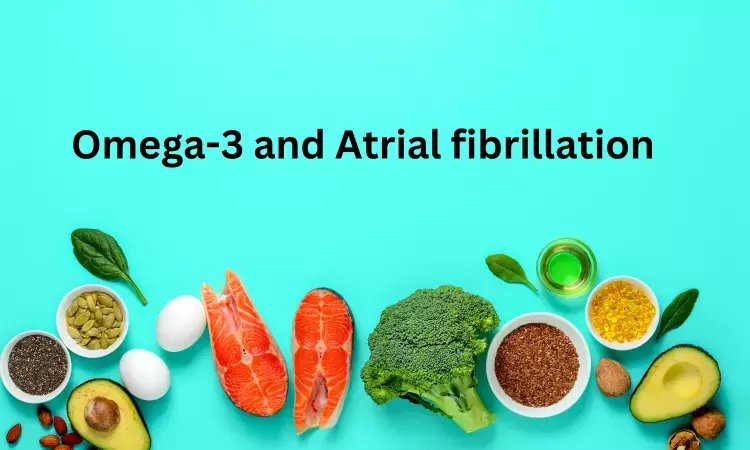- Home
- Medical news & Guidelines
- Anesthesiology
- Cardiology and CTVS
- Critical Care
- Dentistry
- Dermatology
- Diabetes and Endocrinology
- ENT
- Gastroenterology
- Medicine
- Nephrology
- Neurology
- Obstretics-Gynaecology
- Oncology
- Ophthalmology
- Orthopaedics
- Pediatrics-Neonatology
- Psychiatry
- Pulmonology
- Radiology
- Surgery
- Urology
- Laboratory Medicine
- Diet
- Nursing
- Paramedical
- Physiotherapy
- Health news
- Fact Check
- Bone Health Fact Check
- Brain Health Fact Check
- Cancer Related Fact Check
- Child Care Fact Check
- Dental and oral health fact check
- Diabetes and metabolic health fact check
- Diet and Nutrition Fact Check
- Eye and ENT Care Fact Check
- Fitness fact check
- Gut health fact check
- Heart health fact check
- Kidney health fact check
- Medical education fact check
- Men's health fact check
- Respiratory fact check
- Skin and hair care fact check
- Vaccine and Immunization fact check
- Women's health fact check
- AYUSH
- State News
- Andaman and Nicobar Islands
- Andhra Pradesh
- Arunachal Pradesh
- Assam
- Bihar
- Chandigarh
- Chattisgarh
- Dadra and Nagar Haveli
- Daman and Diu
- Delhi
- Goa
- Gujarat
- Haryana
- Himachal Pradesh
- Jammu & Kashmir
- Jharkhand
- Karnataka
- Kerala
- Ladakh
- Lakshadweep
- Madhya Pradesh
- Maharashtra
- Manipur
- Meghalaya
- Mizoram
- Nagaland
- Odisha
- Puducherry
- Punjab
- Rajasthan
- Sikkim
- Tamil Nadu
- Telangana
- Tripura
- Uttar Pradesh
- Uttrakhand
- West Bengal
- Medical Education
- Industry
Omega-3 supplementation may increase risk of AF in post-MI patients

Omega-3 fatty acids popularly known as "healthy fats" that is popularly known to benefit heart health. One key benefit of omeg-3 supplementation is known to lower triglycerides levels. Specific types of omega-3s include DHA and EPA (found in seafood) and ALA (found in plants).
However recent randomized clinical trials have raised concerns regarding potential off target adverse effects from supplementation of n-3 polyunsaturated fatty acids (PUFA) on atrial fibrillation (AF) risk.
The OMEMI Trial by Peder L. Myhre and team suggests that supplementation of n-3 PUFA post MI increases the risk of ‘micro-AF’ and AF, and increases in EPA seems to be an important mediator of the treatment effect from n-3 PUFA on the risk of AF. The trial is published in journal Clinical Nutrition.
Researchers aimed to assess risk and potential mediators of AF and ‘micro-AF’ from n-3 PUFA in post-myocardial infarction (MI) patients. The OMEMI trial, included 70–82 y. o. patients with a recent MI were randomized to 1.8 g/day of eicosapentaenoic-/docosahexaenoic acid (EPA/DHA) or placebo (corn oil) for two years. New-onset AF and ‘micro-AF’ was recorded by clinical detection and by screening with Zenicor thumb-ECG (adjudicated by blinded investigators). Serum EPA and DHA were measured at baseline and study end.
The key findings of the study are
• At baseline, 759 of 1014 (75%) patients had no AF history. These patients were aged 75 ± 4 years and 71% were male.
• During follow-up, 43 patients developed new-onset AF (39 clinically-detected and 4 by thumb-ECG screening).
• In addition, 27 patients had episodes of micro-AF, yielding a total of 70 patients with new-onset AF or ‘micro-AF’.
• In the n-3 PUFA group 46 (11.9%) had AF/’micro-AF’ (28 AF, 18 ‘micro-AF’) and in the placebo group 24 (6.5%) had AF/micro-AF (15 AF, 9 micro-AF); HR 1.90 (95%CI 1.16–3.11), P = 0.011.
• Changes in serum EPA (but not DHA) mediated the effect from n-3 PUFA on AF risk, explaining 65% of the association.
Researchers concluded that “Supplementation of n-3 PUFA post MI increases the risk of ‘micro-AF’ and AF, and increases in EPA seems to be an important mediator of the treatment effect from n-3 PUFA on the risk of AF.”
Reference: Peder L. Myhre a b, Trygve Berge b c 1, Are A. Kalstad b d, Sjur H et al; Omega-3 fatty acid supplements and risk of atrial fibrillation and ‘micro-atrial fibrillation’: A secondary analysis from the OMEMI trial, September 2023, DOI:https://doi.org/10.1016/j.clnu.2023.07.002.
MSc. Neuroscience
Niveditha Subramani a MSc. Neuroscience (Faculty of Medicine) graduate from University of Madras, Chennai. Ambitious in Neuro research having worked in motor diseases and neuron apoptosis is interested in more of new upcoming research and their advancement in field of medicine. She has an engrossed skill towards writing and her roles at Medical dialogue include Sr. Content writer. Her news covers new discoveries and updates in field of medicine. She can be reached at editorial@medicaldialogues.in
Dr Kamal Kant Kohli-MBBS, DTCD- a chest specialist with more than 30 years of practice and a flair for writing clinical articles, Dr Kamal Kant Kohli joined Medical Dialogues as a Chief Editor of Medical News. Besides writing articles, as an editor, he proofreads and verifies all the medical content published on Medical Dialogues including those coming from journals, studies,medical conferences,guidelines etc. Email: drkohli@medicaldialogues.in. Contact no. 011-43720751


